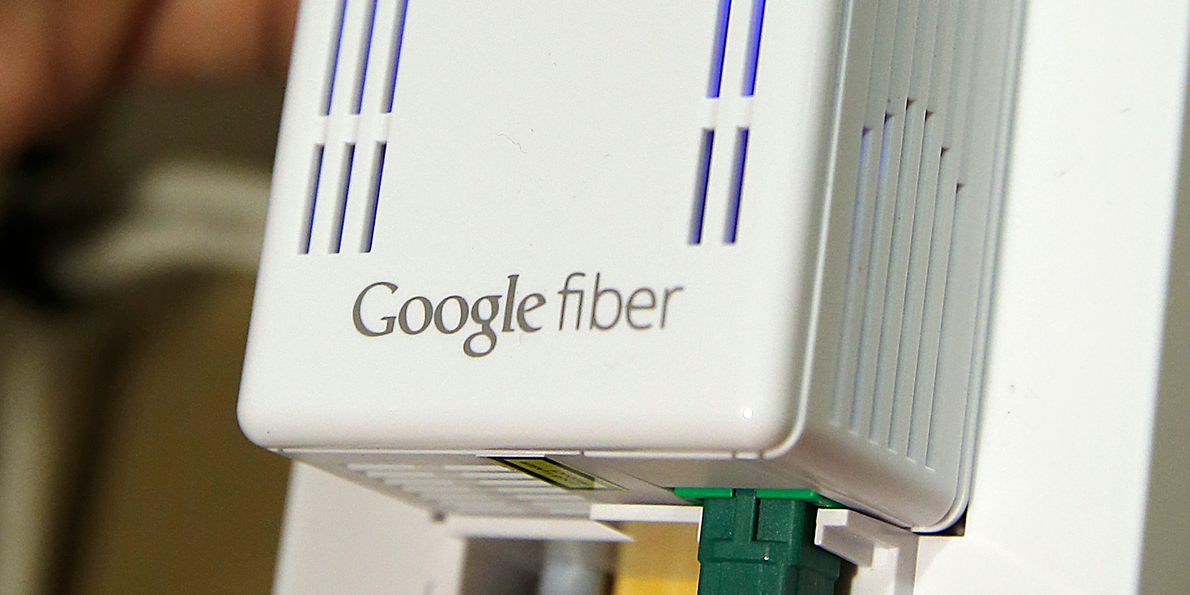A Gamer's Guide: How Does Satellite Internet Work for Playing Video Games?
How does satellite internet work for playing video games? We've got your gamer's guide to tell you everything you need to know here!

How Does Satellite Internet Work for Playing Video Games?
Did you know that 8.4 million households rely on satellite internet in the US? That's six percent of internet users today.
How does satellite internet work?
It relies on orbiting satellites to transmit internet signals. This system proves more expensive than traditional internet yet provides access to rural communities where other options aren't available.
While the most satellite-dependent ZIP codes cover plenty of territory, they don't house as many people as you'd think. There are about 2.22 million people or .07 percent of the population living in these areas.
Why do four times that number have satellite internet? Because many people opt for satellite even when other options exist. Part of this may be because satellite internet has recently gotten much faster.
Nonetheless, for players who prefer sports and shooting games, satellite internet still comes with many problems. Read on to learn more about satellite internet and video game functionality.
How Does Satellite Internet Work?
The concept behind satellite internet service is surprisingly simple. Your computer shoots a signal request through your modem out to your satellite dish. Then, your satellite dish transmits the signal on to a provider's orbiting satellite.
The satellite returns the signal to the provider, and the provider delivers that signal back to the satellite. From there, it travels to your dish, modem, and computer.
Unless you have only one Ethernet connection, your home will also require a router to distribute the resulting Wi-Fi signal through your home.
How Does Satellite Internet Compare to Other Services?
There are two major satellite internet providers to know about: HughesNet and Viasat. They've come a long way in recent years. Nonetheless, satellite internet, by its very nature, will feel laggier. There are a handful of reasons for this.
Cable internet relies on shielded coaxial cables. Fiber uses shielded fiber-optic cables, and DSL relies on telephone lines. Learn more about broadband, DSL, and satellite internet performance pros and cons.
These direct connections guard against packet loss (data that's supposed to be there but doesn't show up) and interference. They also result in faster speeds, which is essential for gamers who gravitate towards products like Call of Duty, which rely on lightning reflexes.
Satellite internet works well for browsing the web, checking your social media feeds, and catching up on your favorite Netflix shows. But if you're a gamer who wants to spend most of your time playing sports or in online shootouts, satellite internet may frustrate you.
The sheer distance that satellite signals have to travel increases the likelihood of interference. What's more, since the signal is less direct, satellite internet tends to have a higher latency.
What Is Latency?
Latency refers to the time it takes for data to transfer from one location to another. Cable, DSL, and fiber internet all have a direct line from the provider's hub to your house or street. As a result, they have less latency.
Satellite internet, however, must deal with interference because of its lack of a direct connection. The result? Increased latency.
It isn’t that surprising considering the vast trajectory satellite internet signals must cross. They travel upwards of 22,200 miles (36,000 kilometers) through the air to a satellite in a geostationary orbit. Then, they must rush back to your home.
No matter how quickly this information transmits, you still must account for some travel time. The result? Lag.
Satellite Internet Providers and Latency
Today's satellite internet providers offer faster service than ever before. You can get download speeds ranging from 12 to 100 Mbps. In other words, you can purchase high-speed satellite internet.
That said, when you start downloading photos to Facebook or live-streaming via Twitch, you'll experience buffering issues and longer wait times. Why? Because satellite advertised speeds don't reflect latency.
In other words, even if your satellite speeds are equal to those of cable, fiber, or DSL on paper, don't expect the same performance and speed. Latency will get in the way.
The bottom line remains this. A coaxial cable internet service that offers 100 Mbps will "feel" faster than satellite technology claiming the same 100 Mbps rate because of signal travel time.
Not sure what your internet speeds currently rank? Check out 2020's best internet speed test sites.
Dreaded Data Caps
That's not the only reason that satellite internet feels slow, though. Unlike other forms of internet, satellite internet doesn't usually come with unlimited data.
Instead, you'll have to deal with pesky data caps. A data cap means that once you meet a specific data limit, your speeds will get throttled. Or, you'll get charged an overage fee.
Although your internet service provider won't cut off your internet connection entirely, when you get throttled, you'll notice. Why? Because this data capping makes your internet a whole lot slower and far less usable.
Data caps and throttling are huge annoyances for gamers. No matter how advanced your skills or tactical knowledge as a player, data caps always win in the end.
That said, when you avoid data caps, not all games run poorly on satellite internet or VSAT. Let's take a closer look at different genres and what you can expect from online play.
Satellite Internet and Video Games
Although we've mentioned the unsatisfactory experiences that some gamers have while using satellite internet, that doesn't mean that all video games are unsuitable for VSAT. It depends on the type of game you're playing and its technical requirements.
If your location falls within your satellite provider's footprint, you should achieve speeds of ten to 20 Mbps. That's more than enough for most video games, whether you play on a tablet, PC, phone, or console.
That said, the problem of latency remains. In general, travel time to and from a geostationary satellite runs between 500 and 800 milliseconds. This rate will fluctuate based on where you fall under a satellite's footprint.
While a few hundred milliseconds probably doesn't sound like a lot to you, it can make the difference between life and death when it comes to games where split-second decisions count. Again, the Call of Duty series comes to mind.
Even a half a second lag time can lead to a game death before you know what's happened.
A term you'll see in the gamer community is "ping." It refers to latency plus the reaction time to recognize and respond to another server/computer within the game. In online video games, ping can make a player's character look like they're "teleporting" around the map.
It can be misconstrued as cheating and even result in getting kicked off the server.
Video Games Suitable for Viasat and Hughesnet
Which games prove suitable for use with satellite internet? They include genres such as role-playing games (RPG) and strategy games.
Most role-playing games do not rely on split-second decisions. That's not to say that RPGs don't come with plenty of intensity and action. So, you may notice some performance impacts due to latency.
You may also experience some delays in action from your fellow players. That said, these issues don't generally make the game unplayable. Role-playing games include Farmville and Second Life.
As for strategy games? These include Empire Total War, Sid Meier's Civilization, and Civilization 5. You'll also find online versions of board games lumped into this category, such as Uno and Monopoly.
Since many of these games operate on a turn-base system, the latency associated with your satellite internet will be more or less unnoticeable. As a result, these may prove the least frustrating games to play when dealing with rural internet connections.
Games to Avoid on
As for genres and brands to avoid while playing video games on satellite internet? Shooting games rank at the top. Many of them, like Battlefield, require latency of 100 milliseconds or less. That's because these games rely on rapid movements and split-second decisions.
When you combine these fast-paced games with the low latency of satellite internet, you end up looking like a sitting duck to your opponents. You simply can't react quickly enough because of signal travel time.
What's more, you'll likely notice that inputs from other players may appear once actions have already occurred. In other words, you'll get registered as dead before you even have the chance to retaliate. It doesn't get much more frustrating than that.
You'll also notice significant issues with latency when it comes to sports games. Again, this is because of their format and reliance on split-second reflexes and decision-making.
What to Know About Sports Games on
What do we mean by sports games? They include video games like FIFA 2016.
Fortunately, when it comes to playing games on satellite internet, there are a few racing games that prove suitable. Games that don't require direct competition, such as Colin McRae Dirt, play well over a satellite connection.
Why? Because they don't require head-to-heads but rely on time trials instead. Your computer handles the maps/physics of such games without the necessity of involving the server.
With these games, the only data sent to the server is your player data and the time you achieved.
The Future of Satellite Internet Video Games
If all of this has you feeling a little frustrated, you're not alone. Fortunately, there is a light at the end of the tunnel when it comes to solving satellite internet latency issues: low-Earth orbit satellites.
Low-Earth orbit satellites (LEOs) are still in their infancy. This technology, however, will revolutionize the internet provider world.
How does it work? Low-Earth orbit satellites fly anywhere between 99 miles (160 kilometers) and 1,242 miles (2,000 kilometers) from the surface of the Earth. Because of their low-flying orbit, they drastically reduce latency.
When low-Earth orbit satellites do hit the market, the differences between VSAT service and terrestrial internet will finally prove negligible.
Which companies are currently working on this technology? For starters, O3b has created low-Earth orbit and medium-Earth orbit satellites for internet access in emerging markets.
That said, you'll also find the likes of Jeff Bezos, Elon Musk, and Richard Branson involved in the LEO race. Here's a fascinating technical comparison of three LEO satellite constellation systems.
At the moment, the cost of the equipment remains prohibitive, but the price per megabyte proves much lower. Startup costs also number in the billions of dollars.
What does latency with LEOs look like? For O3b's satellites, they report a lag time of 150 milliseconds. That's four to six times faster than what we're currently getting from geostationary satellites! Talk about a step in the right direction.
Video Games on Satellite Internet
That said, only those living within the +45/-45 degrees range of the equator have access to LEOs. Look for this technology to revolutionize satellite internet in the coming years, though.
Of course, if you're running into the data cap on your internet service, then you'll likely find all internet-based video games frustrating. You'll also hate live-streaming television and browsing the internet. After all, data capping puts the brakes on your service.
While we can look forward to a day when low-Earth orbiting satellites will revolutionize internet service to rural areas, most people on this planet don't yet have access to such technology.
When that day comes, though, it'll be an exciting time for gamers in rural areas. Until then, you'll have to suck it up and stick with games that don't rely on uber-speedy reaction times and split-second decision-making.
What to Do While Waiting for LEOs
In this article, we've answered the question, "How does satellite internet work?" We've also taken a look at some of the video game genres to embrace and avoid if satellite internet latency has got you down.
In the meantime, stick with your online games of Uno, Monopoly, and Farmville. Or, if you're among the lucky percentage of the American population that has access to options other than VSAT, it may be time to trade in your current connection for something more direct.
Ready to discuss your options when it comes to internet service? Contact us for a full rundown of providers and options in your area.




